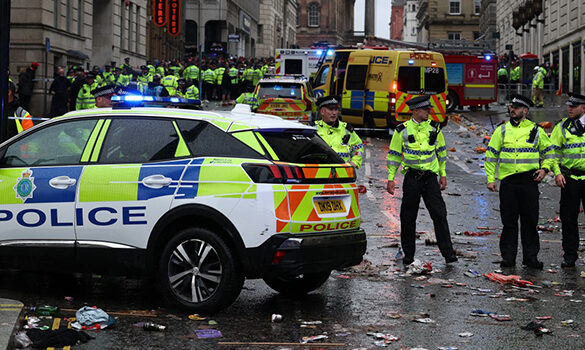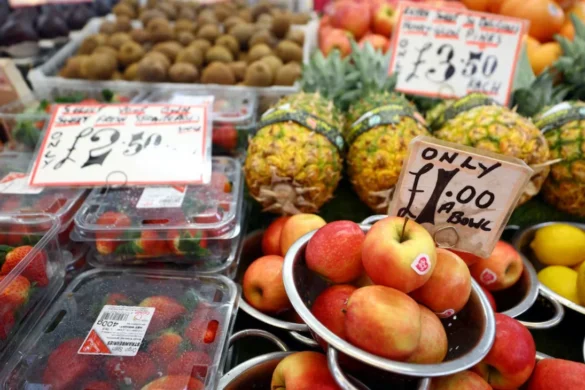 |
| British fishing trawler Cornelis Gert Jan is pictured at sea near Stellendam, Netherlands March 8, 2021 Arjan Buurveld via REUTERS |
Britain warned France on Monday to back down in a fish row within 48 hours or face legal action under the Brexit trade deal.
“The French have made completely unreasonable threats, including to the Channel Islands and to our fishing industry, and they need to withdraw those threats or else we will use the mechanisms of our trade agreement with the EU to take action,” Foreign Secretary Liz Truss told Sky.
“The French have behaved unfairly. It’s not within the terms of the trade deal. And if somebody behaves unfairly in a trade deal, you’re entitled to take action against them and seek some compensatory measures. And that is what we will do if the French don’t back down.”
The dispute was triggered when France accused Britain of issuing only half the fishing licences it believes it is entitled to.
London says it distributes licences to fish in its waters under the rules provided in the Brexit deal. The row intensified when the French detained a British scallop dredger this week.
Relations between Britain and France have become increasingly strained since Britain voted to leave the EU in 2016. London’s recently struck security pact with the United States and Australia did little to build trust with Paris.
The fishing issue dogged Brexit talks for years, not because of its economic importance but because of its political significance. If not resolved, it could trigger the beginning of dispute measures in the Brexit trade deal as soon as this week.
After Johnson and Macron met on Sunday, a French official said the leaders had agreed to try to de-escalate the row, which risks distracting from Britain’s hosting of the United Nations COP26 climate talks that start this week in Glasgow.
But Johnson’s spokesman rejected the description of the meeting.
Paris has said it could impose targeted measures from Tuesday, including heightening some checks, if there is no resolution to the dispute.
A French official said earlier on Sunday that the two sides would try to work out ways to de-escalate the situation. “We’ll see on Nov. 2. We’re not there yet,” the official said.
REUTERS



